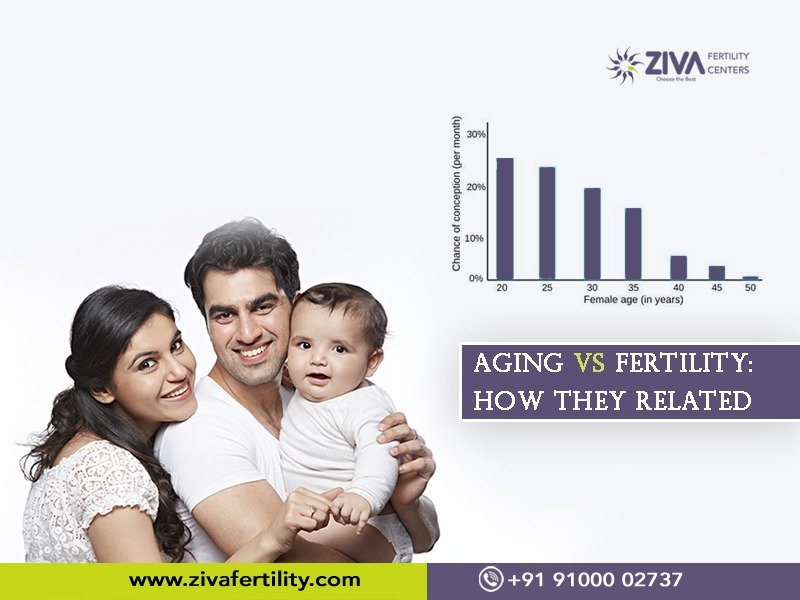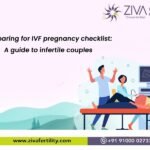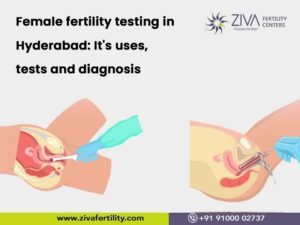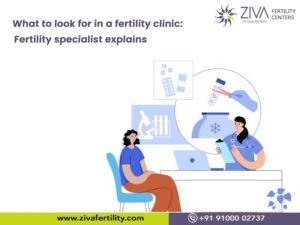Age affects the ability to conceive and have a healthy baby for both men and women.
In this blog, we will look at the medical aspects of late pregnancy. We will also try to burst some myths about conceiving at later ages. First, let us understand how the fertility of both men and women is affected by age.

How does a women’s age affect fertility?
Women are born with the total reserve of eggs for their lifetime. As women’s age progresses, the quality and quantity of eggs reduce. Age is the prime factor affecting a woman’s fertility. However, it is not a hopeless situation; if women maintain good health and adopt a healthy lifestyle, it improves their chances of pregnancy and having a healthy baby. A female in her mid-20s has a 25–30% chance of getting pregnant every month. When a woman is in her early 30s, fertility generally starts to reduce, and more so after age 35. For women in their 40’s, the chances of getting pregnant in any monthly cycle are around 5%. One should not be under the misconception that ARTs like IVF, IUI etc., will take care of age. Age affects the chance of success with IVF. IVF success rates as per age are as follows:
- 43% for women aged 30 to 34 years.
- 31% for women aged 35 to 39 years.
- 11% for women aged 40 to 44 years.
Hence, we at ZIVA fertility clinics suggest that if the female partner’s age is older, it is better to use the eggs donated by a younger woman.
How does men’s age affect fertility?
For a long time, most studies concentrated on the relationship between women’s age and fertility. However, more recent studies have found that the male partner’s age also affects the chance of pregnancy and pregnancy health.
Reduction of male fertility means when sperm quality decreases. Male fertility gets affected after the age of 40-45. The overall chances of pregnancy reduce, or it might take a long time to conceive. Pregnancy from an older male also can increase the risk of miscarriage and fetal death. Offspring of elderly fathers aged 40 or over are 5 times more likely to develop an autism spectrum disorder than children of fathers aged 30 or less.
What are age-related pregnancy complications?

Apart from conception issues, even if one gets pregnant, there is a chance of pregnancy complications increasing with age too. Here’s a look at the pregnancy complication for later-age pregnancies:
- For ages above 35, the risk of miscarriage and chromosomal abnormalities increase.
- Complications such as gestational diabetes
- Placenta previa, where the placenta covers all or part of the cervix, increases the risk of the placenta detaching
- Caesarean section
- Stillbirth.
Myths and facts about Aging vs Fertility: How are they related?
Myth: I can use IVF to have a baby later in life.
Fact: It is not true, as eggs and sperm should be of good quality for both natural and IVF conception. As age increases in both men and women, these faculties reduce.
Myth: Only women should think about age and fertility. Men are immune to this effect.
Fact: It is not true. The latest studies have shown that as men cross the age of 45, their quality of sperm also reduces. It means it takes longer to get pregnant or has difficulty in conception.
Myth: Many couples around us have children in their late age, so we can also wait to have our babies in our 40s.
Fact: This is not entirely true. Getting pregnant is not the only goal; having a healthy pregnancy is equally important. One should also take into consideration the health of the child that is being born with these late pregnancies.
Social Impact of Aging vs Fertility
Having children at a later age is just not a reproductive issue. There are also many social issues involved. For example, if the couple has children after they reach 40, it will become difficult to handle the physical and emotional stress of becoming new parents. By that age, the physical and mental energy of the parents also reduces. By the time the child reaches their teenage, the parents will have crossed the age of 50. This means the generation gap between the child and the parent will greatly increase. Moreover, the parents might not be physically healthy enough to fully support the child. Another issue is the finances because, by the time the child comes to the age of going to university or joining a professional course, the parents might have retired and might not have a sustainable monthly income.
Any couple wanting to have a child should plan and discuss with their fertility doctor the best age to get pregnant. One should also consider the parents’ physical, mental, and emotional health. Societal issues and financial requirements are other important components which affect late-age pregnancy.
We at Ziva fertility clinics also offer counseling services for newly married couples. Please do visit any of our conveniently located locations in Hyderabad. We will patiently listen to all your questions and answer your satisfaction. Please visit our website https://zivafertility.com/ or contact us at +91-9100002737, +91-9392834024, or info@zivafertility.com.
















